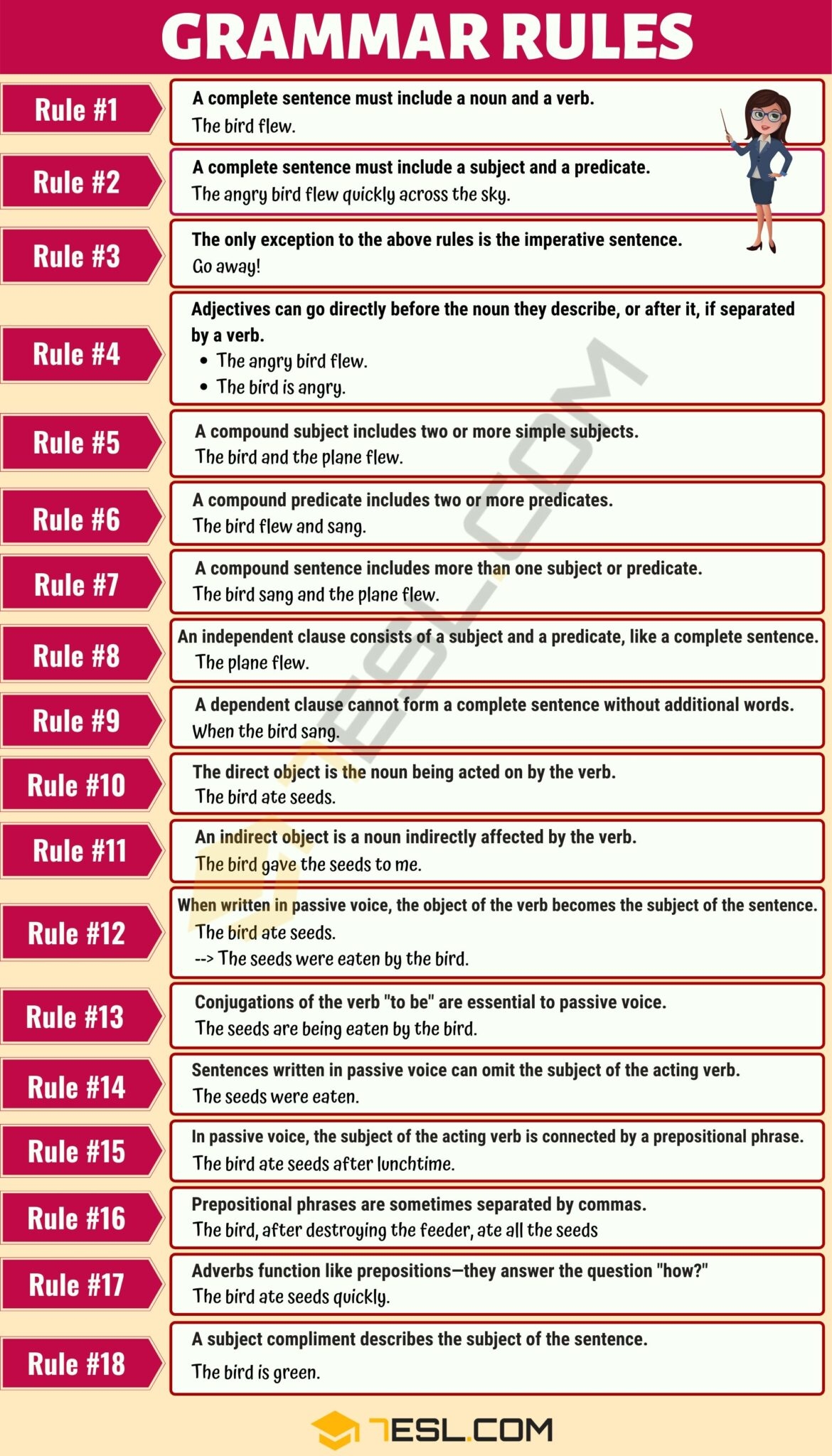English is a complex language with many rules and nuances. Understanding and following these rules can help you communicate effectively and clearly. Whether you are a native speaker or learning English as a second language, mastering these rules is essential for improving your language skills.
1. Use proper grammar and punctuation: Proper grammar and punctuation are essential for clear communication. Make sure to use correct verb tenses, subject-verb agreement, and punctuation marks.
2. Spell words correctly: Spelling errors can detract from your message and make you appear less credible. Take the time to check your spelling and use tools like spell-check to catch any mistakes.
3. Use appropriate vocabulary: Choose your words carefully to convey your message accurately. Avoid using slang or jargon that may be confusing to your audience.
4. Practice active listening: Listening is an important aspect of communication. Pay attention to the speaker and ask clarifying questions to ensure you understand the message.
5. Avoid run-on sentences and fragments: Keep your sentences clear and concise. Avoid run-on sentences and fragments that can confuse your readers.
6. Use parallel structure: When listing items or ideas, make sure to use parallel structure to maintain consistency and clarity in your writing.
7. Be mindful of tone and style: Adjust your tone and style of writing based on your audience and purpose. Use formal language for professional communication and a more casual tone for personal messages.
8. Proofread your work: Always proofread your writing before sending it out. Look for errors in grammar, spelling, and punctuation to ensure your message is clear and professional.
9. Use proper capitalization: Capitalize proper nouns, the first word in a sentence, and titles. Avoid excessive capitalization, which can be distracting to the reader.
10. Be consistent in your writing: Maintain consistency in your writing style, tone, and formatting. This helps to create a cohesive and professional piece of writing.
11. Use commas correctly: Commas are used to separate items in a list, set off introductory phrases, and separate independent clauses. Use commas sparingly and appropriately in your writing.
12. Seek feedback: Ask for feedback from peers or mentors to improve your writing skills. Constructive criticism can help you identify areas for improvement and grow as a writer.
Mastering the rules of English language takes time and practice. By following these 12 rules, you can enhance your communication skills and become a more effective writer and speaker.
